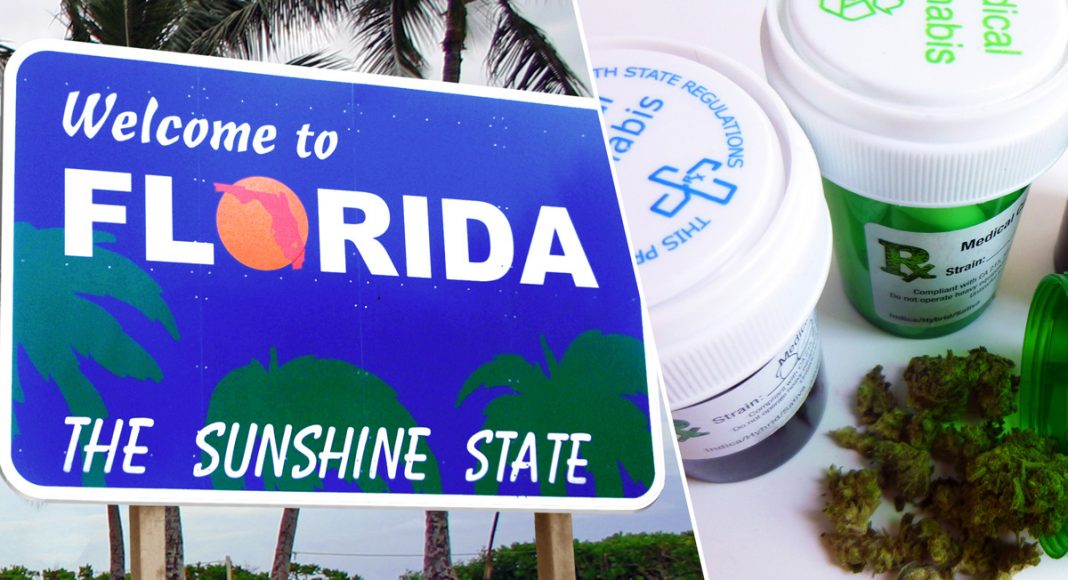For however much excitement the legalization movement provides for cannabis, the narrative can dovetail rather unexpectedly when the matter of creating and implementing a legal marijuana program presents itself. Inevitably, marijuana legalization will enter the sticky, bureaucratic grinders of modern politics. It’s at this point the image of legal cannabis can detour from what voters imagined when they approved passage of such an idea.
Over the past several years we’ve seen continuous delays and obsequious politicking subvert cannabis programs in states like New Jersey and North Dakota. In fact, frustration has mounted so much in North Dakota over its medical cannabis program’s anemic rollout, that residents have resigned to legalizing a radically open recreational cannabis program. Latest polls give a slight edge to Measure 3 passing, which would immediately create a cannabis industry without many regulatory oversight, come November.
Perhaps nowhere embodies those political grinders mushing green-minded enthusiasm to a pulp, however, than Florida. When 72% of voters said yes to medical marijuana in 2016, the Sunshine State couldn’t anticipate the looming dark clouds that would soon roll in.
It started when state legislators essentially punted on drafting workable legislation surrounding a medical marijuana program. Florida Republicans displayed antagonistic attitudes toward cannabis, and you could speculate this political gesture was them stomping their foot in the ground. Or you could follow other rumors that Florida’s Congress just wasn’t competent enough to figure things out. Either way, the end result was that responsibility falling to the hands of the state’s Department of Health.
As the saying goes, it was not good, Bob. The rickety system the Health Department constructed has resulted in the following: doctors unprepared to deliver sound medical marijuana advice, medical cannabis access being denied to nursing home patients, and possibly nefarious clinics preying on those in desperation. But nowhere represents the state’s willful ignorance than its ban on smokable marijuana for medical patients. Many voters assumed what they approved at the polls in 2016 included access to cannabis flower, as the phrase “smokable marijuana ban” was not included in the question proposed to voters.
Nearly 2 years after 72% of Floridians voted for the right to access medical marijuana, many still can’t.
It’s unacceptable—as Commissioner of Agriculture, I will push to expand patient access and ensure the sick & suffering can access this life-changing medicine. pic.twitter.com/rcYFpEDctE
— Nikki Fried (@NikkiFried) October 25, 2018
Regardless if cannabis advocates might prefer one method over the other, access to smokable cannabis is important from a medical perspective. Often times, it’s the fastest surefire way to relieve various pains and ailments. This is what caused Cathy Jordan and Diana Dodson to sue the state of Florida, with the assistance of the powerful central Florida attorney and hardcore cannabis activist John Morgan.
Jordan and Dodson claimed in their lawsuit that smoking cannabis had prolonged their life. Earlier this year, a judge in Tallahassee ruled they were right, forcing the state to lift the stay on smokable marijuana. That judge also ruled in favor of Tampa’s strip club king, who was given permission to home grow cannabis flower for medical purposes. (Only in Florida, right?)
However, the state has fought back. Recent reports show that smokable cannabis for medical patients has languished in appellate courts, suffering more delays, denying those the medicine they so desperately need.
The effect this will have on Florida’s midterm elections is already being felt. With current Gov. Rick Scott aiming for a Senate seat in Washington, the gubernatorial race has been wide open for fresh faces. Currently, U.S. Rep. Ron DeSantis—the Republican nominee—and Tallahassee Mayor Andrew Gillum—Democrat nominee—are running neck and neck, with some polls giving a slight edge to Gillum. Voters have indicated that marijuana plays a key role in the governor race as well, and guess who supports adult-use marijuana in the state—Gillum.
Legalize it. Tax it. Use the revenue to fix Florida's public schools and move us up from 29th in the nation to #1. #FlaPol https://t.co/4jIdLYgWOl
— Andrew Gillum (@AndrewGillum) January 24, 2018
If anything, the failure of the state to honor Florida voters’ will has only further ignited the cannabis movement in the state. A poll last month showed that more voters support full legalization in the state than those opposed. Come November, it’s up to those cannabis advocates to make their voices heard.


